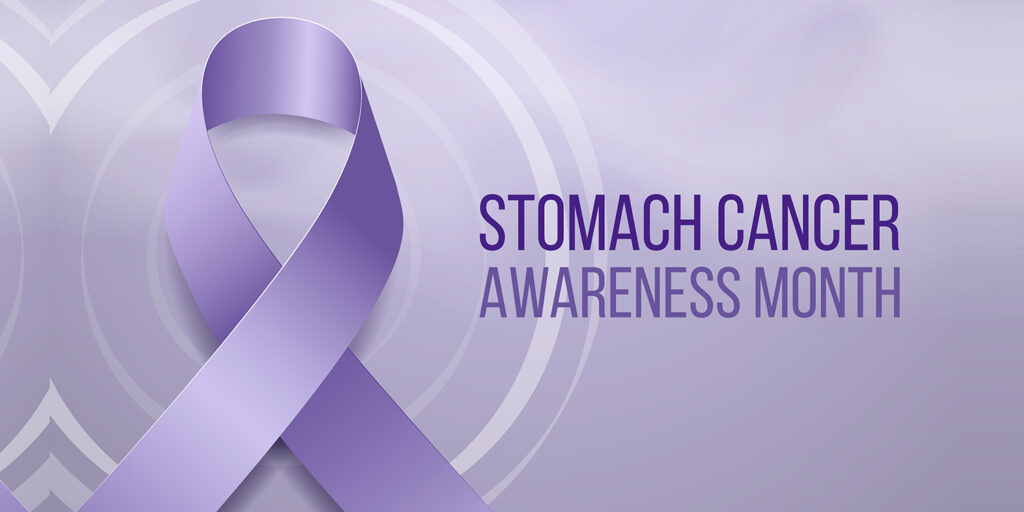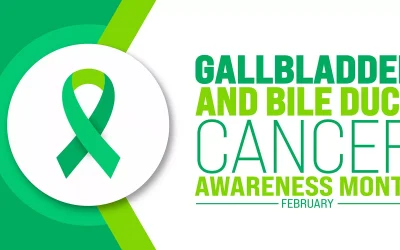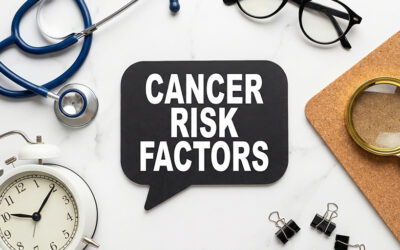Stomach Cancer Awareness Month 2025: Shedding Light on the Silent Disease

Stomach cancer, also known as gastric cancer, is often called a ‘silent disease’ because its early symptoms are often unclear and can be easily mistaken for common digestive issues. By the time it is diagnosed, the condition has often progressed, making treatment more challenging. However, when detected early, stomach cancer is one of the most treatable forms of cancer. World Stomach Cancer Awareness Month is observed every November to serve as a global reminder of the need to recognise the early warning signs of stomach cancer, understand its risk factors, and seek timely medical care. In this article, we will explore the origin and significance of World Stomach Cancer Awareness Month, the risk factors for stomach cancer, and the vital role of early detection in saving lives. Let’s start by understanding the history and significance of World Stomach Cancer Awareness Month.
Table of Contents
ToggleWorld Stomach Cancer Awareness Month 2025: History and Importance
World Stomach Cancer Awareness Month, also known as Gastric Cancer Awareness Month, is observed every November to raise awareness about one of the world’s leading causes of cancer-related deaths. The initiative was launched by international advocacy groups and cancer organisations to educate communities about the disease, its symptoms, and the importance of early diagnosis. Over time, it has evolved into a global movement supported by healthcare professionals, survivors, and research bodies worldwide.
Across November, hospitals, advocacy groups, and cancer foundations organise awareness drives, educational campaigns, and community events to help people identify early warning signs and seek timely medical care. The campaign also highlights survivor stories, scientific advances, and research efforts that inspire hope and action. By fostering greater awareness and reducing stigma, World Stomach Cancer Awareness Month reinforces the importance of early detection and equitable access to care for individuals and families affected by the disease.
Importance of Awareness about Early Detection and Prevention
Raising awareness about stomach cancer is essential to improving survival rates and promoting timely medical attention. Key reasons why awareness is important include:
- Early detection improves survival: When diagnosed in the initial stages through tests such as endoscopy or imaging, stomach cancer is far more treatable and outcomes are significantly better.
- Helps people recognise subtle warning signs: Awareness encourages individuals to take persistent indigestion, bloating, or unexplained weight loss seriously instead of dismissing them as routine discomfort.
- Promotes preventive health habits: Public campaigns educate communities on the importance of a balanced diet, limiting alcohol, avoiding tobacco, and maintaining a healthy lifestyle.
- Reduces stigma and fear: By normalising conversations about cancer, people become more likely to seek help early and support others undergoing treatment.
- Encourages regular screening: Awareness drives often lead to higher participation in health check-ups, which can identify risk factors before symptoms appear.
Read More: What Does ‘Cancer is Curable if Detected in Early Stage’ Mean?
What is Stomach Cancer and What are its Types?
Stomach cancer, or gastric cancer, occurs when abnormal cells begin to grow uncontrollably in the inner lining of the stomach. Over time, these cells can form a tumour that may spread to nearby organs such as the oesophagus, pancreas, or liver if not detected early.
Stomach cancer can develop in different types of cells that make up the stomach lining. Identifying the type of cancer helps doctors decide the most effective treatment approach. The main types include:
- Adenocarcinoma: The most common type, accounting for nearly 90–95% of stomach cancer cases. It begins in the glandular cells of the stomach lining that produce mucus and digestive juices.
- Lymphoma: A rare cancer that originates in the immune system cells (lymphocytes) found in the stomach wall.
- Gastrointestinal stromal tumour (GIST): Develops in the interstitial cells of Cajal, which control muscle movements in the digestive tract.
- Carcinoid tumour: A slow-growing cancer that starts in the hormone-producing cells of the stomach and can affect digestive functions.
- Other rare types: These include squamous cell carcinoma, small cell carcinoma, and leiomyosarcoma, which account for a small percentage of cases.
Common Myths about Stomach Cancer
Myths and misconceptions about stomach cancer can delay diagnosis and prevent people from seeking timely care. Understanding the facts helps replace fear with awareness and informed action. Here are some common myths debunked:
- Myth: Stomach cancer only affects older adults.
Fact: While the risk increases with age, lifestyle factors and genetic predisposition can also cause stomach cancer in younger individuals.
- Myth: Indigestion or acidity always means stomach cancer.
Fact: Not all digestive discomfort is cancer-related, but persistent symptoms should be evaluated to rule out serious conditions.
- Myth: Stomach cancer is always fatal.
Fact: When detected early, stomach cancer can be treated successfully with surgery and modern therapies, allowing patients to live full, healthy lives.
- Myth: Only people with a family history develop stomach cancer.
Fact: Although family history raises risk, diet, infections, smoking, and other factors play an equally important role.
Raising awareness and dispelling these myths encourage early medical attention, helping more people seek timely diagnosis and treatment.
Warning Signs and Symptoms of Stomach Cancer (Gastric Cancer)
Stomach cancer often develops slowly, and its early symptoms can resemble common digestive problems. Recognising these warning signs can help detect the condition early, when treatment is most effective.
Common symptoms of stomach cancer include:
- Persistent indigestion or heartburn: Frequent acidity or discomfort that does not improve with medication.
- Unexplained weight loss: Losing weight without any change in diet or activity level.
- Loss of appetite or feeling full quickly: Difficulty eating normal portions or loss of interest in food.
- Bloating or abdominal discomfort: A feeling of heaviness, swelling, or pain after meals.
- Nausea or vomiting: Sometimes with traces of blood.
- Fatigue or weakness: Caused by nutritional deficiencies or internal bleeding.
- Black or tarry stools: A sign of bleeding in the digestive tract.
These symptoms may also occur in non-cancerous conditions, but if they persist or worsen over time, medical evaluation is essential to rule out serious causes and begin treatment promptly.
What are the Causes of Stomach Cancer?
The exact cause of stomach cancer is not always known, but several factors can damage the stomach lining or trigger abnormal cell growth over time. Common causes and contributing factors include:
- Chronic Helicobacter pylori infection: Long-term infection with this bacterium can lead to inflammation, ulcers, and changes in stomach cells.
- Prolonged gastritis: Continuous irritation of the stomach lining increases the risk of cell mutations.
- Diet high in salted or smoked foods: Consuming excessive processed meats, pickles, and smoked items may contribute to stomach cell damage.
- Tobacco and alcohol use: Both substances can irritate the stomach lining and promote abnormal cell growth.
- Family history and genetics: A family history of gastric cancer or inherited gene mutations can increase risk.
- Previous stomach surgery: Procedures done for ulcers or other conditions can alter acid production and increase susceptibility.
- Certain medical conditions: Pernicious anaemia, stomach polyps, and obesity may also contribute to cancer risk.
How is Stomach Cancer Diagnosed?
Diagnosing stomach cancer requires a combination of clinical evaluation, imaging tests, and laboratory tests to determine the extent and type of the condition. Common diagnostic methods include:
- Physical examination and medical history: Doctors review symptoms, lifestyle habits, and family history to assess possible risk factors.
- Endoscopy: A thin, flexible tube with a camera (endoscope) is inserted through the mouth to examine the stomach lining and detect abnormal growths.
- Biopsy: During an endoscopy, small tissue samples may be taken for microscopic analysis to confirm the presence of cancer cells.
- Imaging tests: Procedures such as CT scan, MRI, or PET scan help identify tumour size, spread, and staging.
- Barium swallow test: In some cases, patients may be asked to swallow a barium solution before X-rays to outline the stomach and detect irregularities.
- Blood tests: Certain markers and anaemia levels can provide supportive evidence for diagnosis and guide further evaluation.
A timely and accurate diagnosis not only helps identify the stage of stomach cancer but also allows specialists to plan the most effective treatment strategy.
Treatment Options for Stomach Cancer
Treatment for stomach cancer depends on its stage, location, and the patient’s overall health. The goal is to remove or control the tumour, relieve symptoms, and improve quality of life. Early diagnosis plays a crucial role in expanding treatment choices and improving outcomes.
Common treatment options include:
- Surgery: The most common treatment, involving partial or total removal of the stomach (gastrectomy) along with nearby lymph nodes.
- Chemotherapy: Uses cancer-fighting drugs to destroy abnormal cells before or after surgery, or when surgery isn’t possible.
- Radiation therapy: Targets and shrinks tumours using controlled doses of high-energy radiation.
- Targeted therapy: Focuses on specific cancer cell markers to stop growth and spread with minimal damage to healthy tissues.
- Immunotherapy: Boosts the immune system to help the body fight cancer more effectively.
A multidisciplinary approach combining these treatments often yields the best results. Supportive care, including nutritional guidance and psychological support, further enhances recovery and overall well-being.
Preventive Measures for Stomach Cancer
While not all cases of stomach cancer can be prevented, adopting healthy habits and making informed lifestyle choices can significantly reduce the risk. Awareness, early screening, and dietary balance play a major role in prevention.
Simple steps that may help lower the risk include:
- Eating a balanced diet: Include fresh fruits, vegetables, and foods rich in dietary fibre such as whole grains, lentils, and leafy greens. Limit intake of smoked, pickled, and salted foods.
- Avoiding tobacco and alcohol: Quitting smoking and moderating alcohol consumption can help protect the stomach lining from irritation and inflammation.
- Maintaining a healthy weight: Regular exercise and a balanced dietreduce obesity-related cancer risks.
- Treating Helicobacter pylori infection: Timely treatment of chronic infections or ulcers lowers the chance of stomach lining damage.
- Limiting processed foods: Reducing red meat, processed snacks, and high-sodium items supports better digestive health.
- Regular health check-ups: Routine screenings and full body check-ups can detect early changes or precancerous conditions.
Preventive care is the most effective way to fight stomach cancer, and consistent healthy choices can go a long way in protecting long-term digestive health.
When to See a Doctor?
Many symptoms of stomach cancer may seem mild or resemble common digestive issues, but persistent or worsening signs should never be ignored. It is advisable to consult a gastro doctor if:
- Symptoms such as indigestion, bloating, or nausea persist for more than a few weeks.
- There is unexplained weight loss, fatigue, or loss of appetite.
- Vomiting or stools show traces of blood.
- Pain or discomfort in the upper abdomen occurs frequently, especially after meals.
- There is a family history of stomach or gastrointestinal cancer.
- You have long-term gastritis, ulcers, or an untreated Helicobacter pylori infection.
Early consultation and routine screening can help detect potential problems before they progress, improving recovery outcomes and overall well-being.
Why Choose Graphic Era Hospital for Gastrointestinal Cancer Care?
Graphic Era Hospital provides specialised, patient-centred care for individuals with stomach and other gastrointestinal cancers. The hospital combines clinical expertise, advanced diagnostic technology, and compassionate support to ensure accurate diagnosis and effective treatment. We offer:
Experienced Gastrointestinal and Cancer Specialists
A multidisciplinary team of gastroenterologists, oncologists, and surgeons work together to evaluate each case in detail. Their combined expertise ensures that every patient receives a personalised treatment plan tailored to the stage and type of cancer.
Advanced Technology and Minimally Invasive Procedures
The hospital is equipped with modern diagnostic and treatment facilities, including endoscopy, CT and MRI imaging, and minimally invasive surgical options. These technologies enable precise diagnosis, quicker recovery, and reduced discomfort.
Comprehensive Rehabilitation and Personalised Care
At Graphic Era Hospital, recovery continues well beyond treatment. Each patient receives tailored rehabilitation that includes nutritional guidance, emotional support, and regular follow-ups to restore strength, improve well-being, and support long-term recovery.
How Can You Support Stomach Cancer Awareness Month?
Supporting Stomach Cancer Awareness Month goes beyond learning about the condition; it’s about encouraging community participation, early detection, and compassionate support for those affected. Every small effort contributes to spreading awareness and saving lives.
Here are some meaningful ways to get involved:
- Participate in awareness drives: Join local events, health talks, or online campaigns that promote education about gastric cancer.
- Encourage preventive screenings: Motivate family and friends to schedule regular full body check-ups or gastro consultations, especially if they experience ongoing digestive issues.
- Share information responsibly: Use social media to share verified facts, survivor stories, and awareness messages that inspire others to take action.
- Support patients and caregivers: Offer empathy, volunteer with support groups, or contribute to community initiatives that help those undergoing treatment.
- Adopt healthy habits: Make personal lifestyle changes that reduce cancer risk, setting an example for others to follow.
Collective awareness and action can make a real difference, helping more people recognise the signs early and seek timely medical care.
Conclusion
Awareness is the first step towards defeating stomach cancer – a condition that often goes unnoticed until it becomes serious. By recognising the early warning signs and taking preventive steps, individuals can protect their digestive health and ensure timely medical attention.
Graphic Era Hospital, Dehradun, stands at the forefront of gastrointestinal and cancer care with its team of experienced specialists, advanced diagnostic facilities, and patient-centred approach. The hospital focuses on accurate diagnosis, effective treatment, and holistic recovery for every patient. To consult an expert cancer specialist or gastro doctor at Graphic Era Hospital, call 1800-889-7351 and take the first step towards timely, expert-guided care.
Frequently Asked Questions
When is World Stomach Cancer Awareness Month observed?
World Stomach Cancer Awareness Month is observed every November to promote education, early detection, and preventive care for gastric cancer.
What is the theme of World Stomach Cancer Awareness Month 2025?
Each year, World Stomach Cancer Awareness Month is observed with a central theme that unites global efforts toward prevention, education, and early detection. The official theme for 2025 is yet to be announced by international cancer organisations, but the focus continues to centre on improving awareness, promoting timely diagnosis, and supporting research for better treatment outcomes. The theme serves as a reminder that awareness saves lives by inspiring individuals, communities, and healthcare institutions to share knowledge, challenge misconceptions, and encourage preventive health check-ups through campaigns and community initiatives.
What are the early signs of stomach cancer to watch out for?
Early signs may include indigestion, bloating, nausea, loss of appetite, or unexplained weight loss. If these symptoms persist, consulting a gastro doctor for evaluation is recommended.
How is stomach cancer diagnosed?
Diagnosis usually involves an endoscopy, biopsy, and imaging tests such as CT or MRI scans to identify abnormal growths and determine the stage of the condition.
Can lifestyle changes help prevent stomach cancer?
Yes. Eating a balanced diet rich in fruits, vegetables, and dietary fibre, avoiding tobacco and alcohol, and managing Helicobacter pylori infections can help reduce risk.
Where can I consult a stomach or gastrointestinal cancer specialist near me in Dehradun?
Graphic Era Hospital in Dehradun offers advanced diagnostic and treatment facilities for gastrointestinal and stomach cancers, supported by experienced gastro doctors and oncology specialists.
Are regular full body check-ups useful for detecting stomach cancer early?
Yes. Full body check-ups and routine health screenings can identify potential issues early, improving the chances of timely diagnosis and effective treatment.
What is the survival rate for stomach cancer?
Survival rates depend on the stage at which the cancer is diagnosed. Early-stage stomach cancer has a significantly higher survival rate compared to advanced stages, underscoring the importance of timely detection.
How long does stomach cancer treatment usually take?
The duration varies depending on the stage and treatment type – whether surgery, chemotherapy, or radiation therapy. Some treatments may last a few weeks, while others extend over several months.
What foods should be included in a stomach cancer recovery diet?
After treatment, patients are often advised to eat small, frequent meals rich in protein, dietary fibre, and vitamins. Easily digestible foods such as soups, boiled vegetables, lentils, and fruits like papaya or banana can support recovery.
Can stomach cancer come back after treatment?
In some cases, recurrence is possible, especially if follow-up care is not maintained. Regular check-ups and monitoring are essential to detect any changes early and manage them promptly.
By Specialities
- Bariatric Surgery
- Cancer Care
- Cardiology
- Dental
- Dermatology
- Diabetes & Endocrinology
- Endocrinology and Diabetes
- ENT (Ear Nose Throat)
- Eye Care
- Gastroenterology
- Haematology
- Health Awareness
- Health Care
- Health Tips
- Hematology
- Hepatology
- Internal Medicine
- Mental Health and Behavioural Sciences
- Metabolic
- Neonatology
- Nephrology
- Neurology
- Nutrition & Dietetics
- Obstetrics & Gynaecology
- Oncology
- Ophthalmology
- Orthopaedics
- Paediatric
- Physiotherapy & Rehabilitation
- Plastic and Reconstructive Surgery
- Psychology
- Pulmonology
- Rheumatology
- Spine
- Urology
Recent Posts
- World Hearing Day 2026: Empower Yourself to Protect and Improve Your Hearing
- Understanding Chickenpox: Early Signs, Treatment Options, and Recovery Tips
- Gallbladder and Bile Duct Cancer Awareness Month 2026: All You Need to Know
- High-Fibre Diet: Health Benefits and Top Fibre-Rich Foods
- Why Do My Gums Bleed While Brushing?
Need expert medical advice?
Share your details and our healthcare specialists will reach out to assist you.
By proceeding, you acknowledge and agree to our Privacy Policy, Terms of Use, and Disclaimer.



















